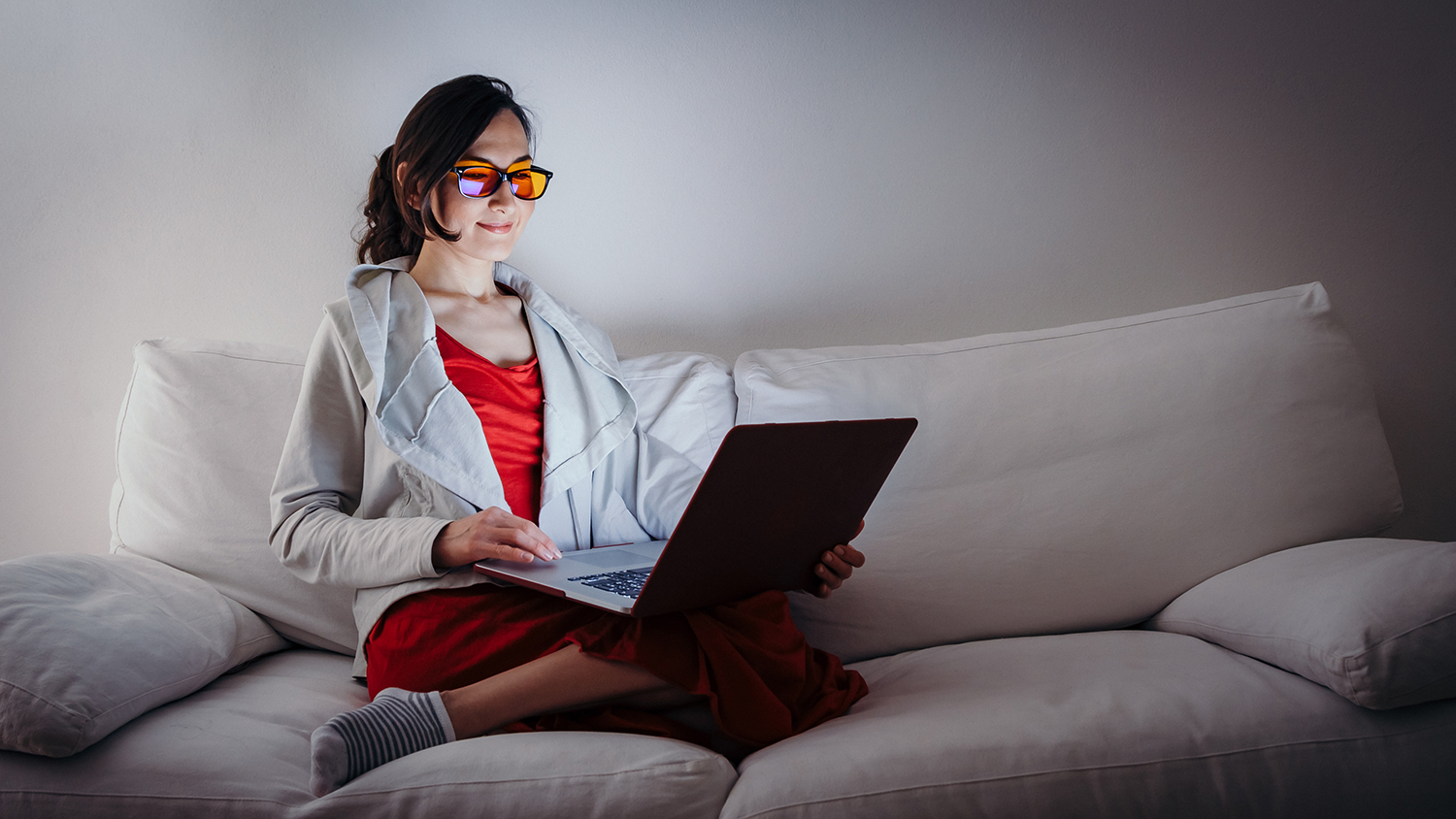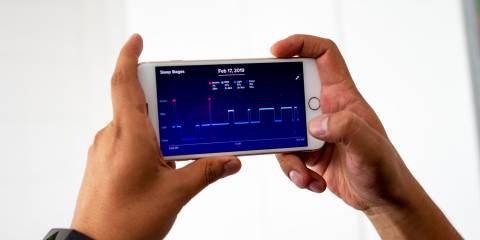Digital devices—which means anything with a screen, ranging from your phone, tablet, laptop, or even a desktop computer—have become a way of life. Spending multiple hours on digital devices fatigues the eyes, causing “computer vision syndrome,” which leads to blurry vision, difficulty focusing, dry eyes, sore eyes, and headaches. The blue light that digital devices emit add to this eye fatigue.
Blue light glasses may help. These lenses block or absorb blue light, helping reduce your exposure to blue light waves. Ask your eye doctor which kind of blue light glasses is best for you.
Problems with Blue Light
Excessive exposure to blue light can create problems related to impaired sleep in both children and adults, explains Dr. Kerry Gelb, a New Jersey optometrist and the president of ALLDocs. This is because blue light decreases melatonin production in the brain’s pineal gland. This lack of sleep can then lead to more health issues, “including poor concentration, decreased memory, and elevated blood sugar, just to name a few,” notes Dr. Gelb.
Research also indicates that blue light exposure around the time of an evening meal increases hunger and decreases insulin sensitivity. Dr. Gelb cautions that parents should be extra careful with children and screen time, since screen time has been connected with children’s lower school performance, altered brain structure, and reduced brain function.
More Ideas for How to Prevent Eyestrain
- Take frequent breaks from digital device use. Every 20 minutes, stand up and look away for 20 seconds at a distance of 20 feet.
- Go outside for exposure to real sunlight.
- Cut off screen time two to three hours before bedtime.
- Screen filters may help, but don’t rely on them.
- If you have a car with a sun roof, drive with it open to let in real light, even opening it a crack helps since light is non-linear.
- Get yearly eye exams.





